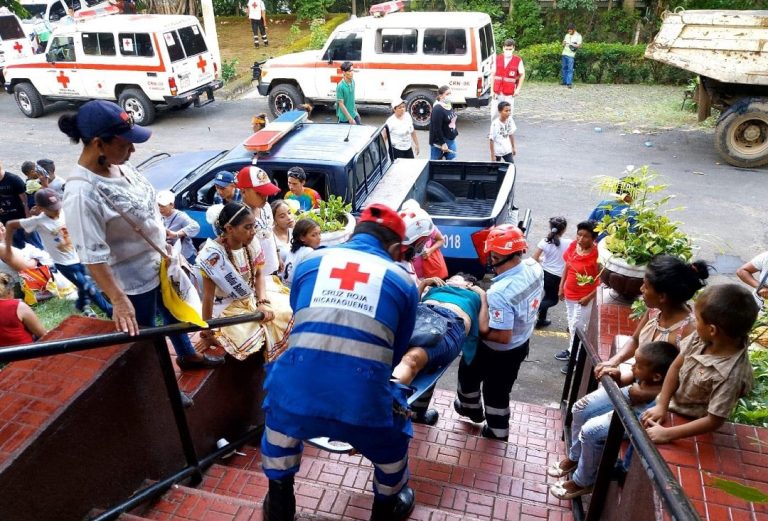12 de mayo 2023

Children of Exile: The Births “Sowing Hope” in the Camp of Nicaraguan Farmers

PUBLICIDAD 1M
PUBLICIDAD 4D
PUBLICIDAD 5D
The International Federation of the Red Cross warns that the situation “could jeopardize much-needed humanitarian activities in the country.”

Red Cross lifeguards rescue a citizen in a procession in Managua. Photo: Facebook Red Cross
The International Red Cross expressed this Thursday its deep concern about the dissolution of the Nicaraguan Red Cross, ordered by the Government of Nicaragua through a rush law, and the impact that this decision could have on humanitarian activities in that country.
“The IFRC (International Federation of the Red Cross) is deeply concerned about the dissolution of our member National Society, the Nicaraguan Red Cross,” it noted.
This situation “could put at risk much-needed humanitarian activities in the country, as well as the work of staff and volunteers,” the international organization said in a statement given to the EFE news agency.
“At this time, we are closely monitoring the situation and evaluating the best way to proceed. Based on the results of that analysis, we will report on our next steps,” added the International Red Cross.
Nicaraguan president Daniel Ortega ordered on May 11th the bill that closes and confiscates the assets of the Nicaraguan Red Cross, a humanitarian organization that had been operating since 1931 after an earthquake that shook Managua.
The National Assembly, controlled by the ruling party, urgently repealed a 1958 legislative decree that legally created the Nicaraguan Red Cross.
Ortega also gave his go-ahead for the creation of a new “Nicaraguan Red Cross”, under the Ministry of Health, and that all the assets that to date belong to the Nicaraguan Red Cross become property of the State and run by a new state humanitarian organization.
The Sandinista deputies and their allies argued that the Nicaraguan Red Cross acted against its principles of humanity, impartiality and neutrality in the demonstrations that broke out five years ago against the Government, when the institution provided aid to thousands of wounded. At the time, Ortega had ordered the country’s hospitals not to treat the wounded.
The 2018 protests left at least 355 dead according to the Inter-American Commission on Human Rights (IACHR), although Nicaraguan organizations raise the figure to 684, while Ortega acknowledges that there were “more than 300″ and maintains that it was an attempted ” coup” against his government.
Since then, Nicaragua has been going through a political and social crisis that worsened after the general elections of November 2021, in which Ortega re-elected himself for a fifth term, fourth in a row and second together with his wife Rosario Murillo as vice president. Months before the election he put his main contenders in prison where they remained until February 9, 2023.
This article was originally published in Spanish in Confidencial and translated by Havana Times
PUBLICIDAD 3M
Agencia de noticias internacional con sede en Madrid, España. Fundada en Burgos durante la guerra civil española en enero de 1939.
PUBLICIDAD 3D